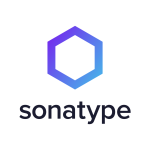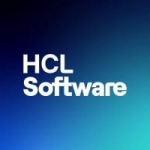What is our primary use case?
Our primary uses are for reviews of our code and overall software environment, bug fixes, and detection of security flaws.
We use the solution across multiple locations and regions, including Asia Pacific, EMEA, and North America. Our user base consists of 5200 individuals.
How has it helped my organization?
The solution has given us real results when it comes to improving our overall security posture; it provides the best security and reports, indicates any flaws that may be present, and allows us to take steps to rectify them. The tool is now a part of our DevSecOps, and we truly rely on it.
Regarding our ability to fix flaws, Veracode is very helpful; it provides a sense of confidence to our developers and a summary of reports that we can share with stakeholders such as our clients and senior management. The solution identifies security loopholes and gives us detailed feedback reports, allowing us to take action to remedy our security vulnerabilities.
Veracode helped our developers save time; two or three development team members were previously dedicated to code security. By automating this task using the solution, those developers can reallocate their time to core software development, which is an excellent result. The time saved is in the region of 25%.
Static Analysis' false positive rate positively affected time and costs related to tuning, leveraging data, and machine learning. Tuning data is essential as it gives us update optimization within our database, which is helpful for any organization. Veracode is the industry leader in being a one-stop shop security solution; it takes care of every aspect.
What is most valuable?
The user interface is excellent, the code review process is quick and provides great analytics to understand our code better, and the SAST scan is high-speed.
Veracode is excellent at preventing vulnerable code from going into production; the scans are speedy and give us a detailed analysis of our code.
We use the Software Bill of Materials feature; it's essential and advantageous. We can't do a bill of materials manually, so it's excellent that Veracode provides this. SBOM helps us manage our risks, as every company has software that needs to be run appropriately throughout the user and client base. It's necessary to have a security audit or security compliance in such applications, and Veracode enables this functionality so we can easily identify security flaws and take measurable action.
Creating a report using the SBOM feature is straightforward, and it's important to our organization because it provides a return on our investment. Previously, we sometimes required a third-party resource to create reports, but with Veracode, it's easier to take care of that on our end.
The solution's policy reporting allows us to set our standards, group policies, and regulations, so ensuring code compliance is part of its analysis. Veracode notifies us if any flaws are detected, allowing us to take action to correct them.
The solution provides visibility into application status at every development phase throughout the SDLC; we can use Veracode during the development, design, testing, and implementation phases. We can easily analyze our code before commencing large production deployments and fix any issues.
What needs improvement?
Sometimes we get a lot of false positives even after configuring our policies, so that could be improved.
There is an issue where the UI occasionally breaks in between uses of the application, which can be improved. The UI could also be more catchy for the benefit of the less technical users.
It would be good if the configuration of dynamic scanning could be less complex.
For how long have I used the solution?
We've been using the solution for over three years.
What do I think about the stability of the solution?
The solution is stable. It wasn't before, as different organizations required new group policies and configurations. The product has yet to mature fully but has developed enough to adopt a stable position in the market.
What do I think about the scalability of the solution?
The solution is as scalable as required, but we must pay for that.
How are customer service and support?
The technical support is good; I rate them nine out of ten.
How would you rate customer service and support?
Which solution did I use previously and why did I switch?
We previously used some open-source software, but our developers generally manually performed code-checking. Our requirement is for a solution that takes care of our software code and security throughout the SDLC. Following evaluation, we found Veracode more useful in terms of licensing, pricing, and features.
How was the initial setup?
The initial setup was straightforward; it took seven to ten days, including gathering all requirements, overall deployment, and the final implementation. The deployment team consisted of four to five members.
The product doesn't require any maintenance; operations and support are primarily handled by Veracode, as it's a fully managed service.
What was our ROI?
We have seen an ROI with Veracode regarding time, money, and overall organization reports. Our ROI is in the region of 25-30%.
The solution reduced the cost of our DevSecOps by lowering the headcount for those previously dedicated to security throughout the SDLC. They can now spend more time improving their code base and focusing on development.
What's my experience with pricing, setup cost, and licensing?
The pricing and licensing are reasonable, and relatively straightforward, and different licensing and subscription models are available.
To someone considering Veracode but concerned about the price, it can be a challenge for small and mid-sized organizations, but it's a good choice for larger enterprises. If security is a primary concern for any organization, they should consider Veracode; they won't be disappointed.
Which other solutions did I evaluate?
We evaluated GitLab, Micro Focus, and SonarQube.
What other advice do I have?
I rate the solution nine out of ten.
Regarding the tool's false positive rate, the analysis is good but can be affected by data and code not supported by Veracode. In these cases, we can experience some challenges, but other than that, the false positive reporting is good. In cases of unsupported code, developer confidence can be affected, as we know there may be some flaws we can't control. If they are minor enough, we can ignore them.
I advise others considering the product to go with it if it fulfills their requirements. Veracode is a tested name in the market for application security and detecting flawed code. They should evaluate other options if they fit the needs better, but I highly recommend Veracode.
Which deployment model are you using for this solution?
Public Cloud
Disclosure: PeerSpot contacted the reviewer to collect the review and to validate authenticity. The reviewer was referred by the vendor, but the review is not subject to editing or approval by the vendor.























